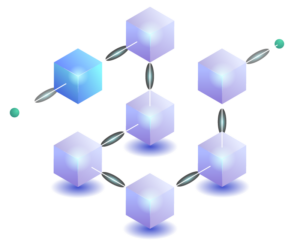EOS
EOS is a blockchain-based platform launched in 2018 that allows for the development of dApps. Specifically, it has capabilities to support authentication, permissioning, data hosting, usage management and communication between dApps built on its platform and the internet. EOS also has its own cryptocurrency, the EOS token. Ethereum is its main competitor.
Ether – ETH
Ether is an essential element (eg native currency) of the Ethereum Blockchain network and constitutes a medium of incentive. Ether is the fuel of the Ethereum ecosystem as it provides a form of payment for the network participants to execute their requested operations on the network.
Ethereum
An open-source, public, blockchain-based distributed computing platform and operating system with smart contract functionality. Its structure is running remotely on the Ethereum Virtual Machine. It makes use of ‘ether’, a cryptocurrency, as its token and supports the storage and execution of smart contracts. Developers can build and run decentralized apps that contribute to the value of the Ethereum ecosystem.
EVM (Ethereum Virtual Machine)
The Ethereum Virtual Machine (EVM) is the runtime environment for smart contracts in Ethereum. It is the fundamental consensus mechanism designed to prevent denial-of-service attacks on Ethereum. Virtual machines are building a layer of detachment between the executing code and the executing machine. This layer is required to make the portable software, as well as to make sure applications are separate from each other, and isolated from their host. All Ethereum nodes run on the EVM, which is home to smart contracts based on the Ethereum blockchain.
Exchange
A marketplace to buy and sell assets such as cryptocurrencies and digital assets. The exchange charges fees in most cases for transactions, withdrawals, or deposits. There are centralized exchanges for cryptocurrency like Coinbase, Kraken or Bitstamp and there are decentralized exchanges that do not have a central authority, like IDEX, Kyber Network and Bancor Network.




